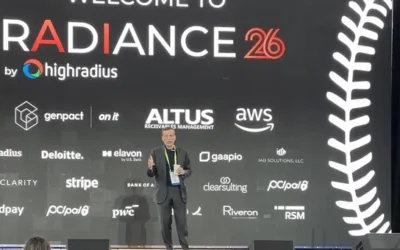The chair of the Public Company Accounting Oversight Board (PCAOB) manages a lot of moving pieces. The responsibility, leadership requirements and political implications involved in holding such a position require someone who has worked for and among some of the most powerful and influential people in the world.
Now, Erica Williams, current chair of the PCAOB, is taking her lessons learned from positions at the SEC, the Obama White House and private litigation to focus on her organization’s mission — protecting shareholders. Despite an uptick in regulation enforcement, the PCAOB and Williams continue to face criticism and challenges regarding the large-scale deficiencies of audits, the auditor selection process and the relatively punitive damages handed out by the board.
Erica Williams

Chair, Public Company Accounting Oversight Board (PCAOB)
- Appointed Chair in January of 2022, term ends October 2024
- Notable previous positions:
- Partner, Kirkland & Ellis
- Special assistant to the President and associate counsel, White House
- Multiple positions, including deputy chief of staff, U.S. Security and Exchange Commission
This interview has been edited for brevity and clarity.
ADAM ZAKI: Rule enforcement can be a thankless job. No one ever says “Wow, that was a great enforcement of the rules.” With this in mind, how do you ensure your employees feel valued?
ERICA WILLIAMS: Our mission at the PCAOB is to protect investors and it is what guides everything we do. It’s why people have come to work here. We have talented and dedicated staff members who could be at accounting or audit firms or big law firms, schools or other institutions; but instead, they come to the PCAOB in large part because they’re drawn to that mission.
“[Our] investor protection mission is the guiding light.”

Erica Williams
Chair, PCAOB
The thing that drives us every day is protecting investors to make sure that they can drive confidence in the markets so investors can rely on the financial statements they use to make investment decisions that impact their real lives. Things like their savings for retirement, their ability to send their children to college and the ability to find a home. Our mission involves giving the ability to pursue your dreams, both for our people and the investors we protect.
This is what drives our staff and keeps them going, even when we have to deal with pushback from time to time. Ultimately, this investor protection mission is the guiding light. I always say that quality audits protect people, and that’s what I reiterate to our staff. They come to work every day to make sure that we are all on the same page about why we do what we do.
You worked in the White House as an advisor for the Obama administration before your current role. What did you learn working with him and in that type of environment?
WILLIAMS: Working with President Obama was a fantastic experience. I enjoyed my time in that role because every day we all went to work thinking “How can we help the American people?” — very similar to how I come to work now at the PCAOB. I was in charge of the White House Counsel’s Office financial portfolio, so ultimately I was in charge of all financial and economic issues that ran through the White House.
One thing I learned from President Obama that I definitely use today is that as leaders, we must set the tone from the top down. He always made sure that we made decisions based on our mission to help the American people. As a leader, he was always the smartest person in the room, we all knew it, but he never let us know and he didn’t act like that. He led with compassion. It’s what I have tried to do in my leadership role since I left the White House.
What are your thoughts on the auditor selection process? I compare it to a restaurant being able to pick their health inspector. What are your thoughts on how this compares, and are you having these conversations?
WILLIAMS: No. Our job is to regulate audit firms and issuers, but the company has the right to select the auditors. That’s not something that is in our purview or is something we want to get into enforcing. What we want to make sure is that the auditors they select are driving audit quality.
I think auditors have the same shared goal as we do, to protect investors. One of the things that we do here is to try and engage with the audit committees. So every year, we do an outreach to audit committees, and we put out a spotlight that has questions that these committees should be asking their auditors. Also, through our inspection process, we meet with audit committee chairs. Last year, we met with 200 of them to talk about what we are seeing in our inspections with respect to deficiencies and we answered their questions.
“Every year, we do an outreach to audit committees, and we put out a spotlight that has questions that these committees should be asking their auditors.”

Erica Williams
Chair, PCAOB
I, as well as my fellow board members, have been doing a great amount of outreach to audit committees to make sure they know we are here to empower them and to also highlight the resources the PCAOB provides to help them do their job effectively.
There seems to be a lot of back and forth at the PCAOB between employees going to work for the regulators and then to the audit/consulting firms. What steps do you take to ensure audits are held to high standards without your employees going easy on a possible future employer? Have you ever considered a “cooling off” period for staff?
WILLIAMS: Auditors, just like lawyers and other people who work for us, have ethical standards. We have an ethics code here at the PCAOB that we absolutely follow. Our staff is very committed to making sure we not only follow the ethics code but also meet their independent standards that are important with respect to others. The standards that we enforce are very familiar to our staff, as lots of accountants and auditors need to comply with that sort of thing pretty regularly.
Our staff also really knows the ins and outs of this industry. Most of them come here with almost a decade of experience, so they know what they’re looking at and how things are supposed to be done. I think having a wide set of experiences makes for better regulators.
I am not concerned with our staff about following the ethics rules, but we still have constant training about them. But, I do believe that different experiences for our staff bring a wealth of knowledge that they otherwise wouldn’t have, making them better understand the industry they’re in, so having experienced people is a benefit to us.
What would you say is the threshold for an audit to be deemed efficient?
WILLIAMS: When you say “efficient,” I think it’s to be known that we are inspecting audits to make sure they are complying with our rules and standards. That’s what we’re looking for. By putting our inspection reports that know the deficiencies in audits, we are trying to provide information on the market regarding audit quality. We are not looking for efficiencies. We’re looking for a quality audit.
There are a wide variety of ways you can define quality. We think the way deficiency rates are reflected in our audit reports is done in a really good way. That’s what we are providing to the market to assist investors and other stakeholders in determining how audit firms can perform a quality audit.
The fines you impose seem incredibly small compared to the size of the industries you regulate. For example, a $20 million fine in a $200 billion industry. Enforcement like this could be viewed as the cost of doing business. How do you address this challenge?
WILLIAMS: Every enforcement matter brings together our talented team that looks at the facts and circumstances and then they apply the stands and rules of the law that come up with a relief amount that they think is to be determined and just. One of the things we are focusing on right now is to deter wrongdoing and to make sure wrongdoers know that there are consequences for putting investors at risk.
We recently had a $25 million penalty on KPMG Netherlands in an exam cheating case. To come up with that amount, our team looked at the facts and circumstances of that particular case as per our process. It’s also important that outside of dollar amounts, we bar individuals or suspend them from being able to do any audits of public companies or registered broker-dealers, we revoke a firm’s registration, we put a person in there as an independent monitor to help monitor the audit quality of a firm, so financial penalties aren’t the only form of relief we give investors.
The accountant shortage has yet to be remedied. Do you have any thoughts on how we can encourage smart young people to pursue accounting?
WILLIAMS: We have been focusing on this shortage and its impact on accounting for some time. There is no question we have to bring young people into the field. We have to encourage a greater representation of young people from all backgrounds who can see accounting as a path for them. Without doing that, we are not going to be able to continue to improve audit quality or uphold the integrity of our markets.
“There is one thing that is pretty clear to me as a contributor to fewer students pursuing accounting — compensation. Accounting firms need to pay more for talent.”

Erica Williams
Chair, PCAOB
One thing that many people do not know is that all the penalties that the PCAOB collects go towards scholarships. It was set up that way in the Sarbanes Oxley Act. All the money goes to scholarships for accounting students. That’s one way we at the PCAOB have always been trying to support young accountants. We also have a mentorship program here at the PCAOB, which has scholarship opportunities as well.
But, there is one thing that is pretty clear to me as a contributor to fewer students pursuing accounting — compensation. Accounting firms need to pay more for talent. The same talent levels they were able to bring on in the past are attracted to other types of jobs in the financial industry where there is more money to be made. So although we are aware and doing what we can to address the issue, we play a limited role.





